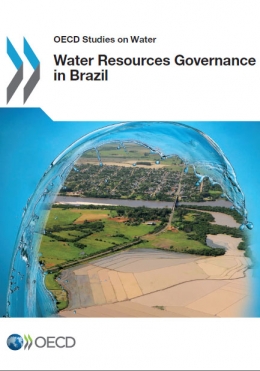Water Resources Governance in Brazil
Water is abundant in Brazil, but unevenly distributed across regions and users. Remarkable progress to reform the sector has been achieved since the 1997 National Water Law, but economic, climate and urbanisation trends generate threats that may jeopardize national growth and development. The consequences are particularly acute in regions where tensions across water users already exist or are likely to grow. The report is the result of a policy dialogue with more than 100 stakeholders at different levels in Brazil. It assesses the performance of Brazil’s water governance and suggests policy recommendations for strengthening the co-ordination between federal and state water policies and for setting up more robust water allocation regimes that can better cope with future risks. The report concludes with an action plan, which suggests concrete milestones and champion institutions to implement those recommendations.
Brazil holds 12% of the world’s freshwater resources, making water a comparatively abundant resource in the country. However, water resources are unevenly distributed across the territory: while the northeastern states are mostly semi-arid, the Amazon region has an abundance of water. This uneven distribution is not unusual in large countries such as Brazil, but it poses challenges for the management of water resources now and in the future.
The report focuses on two questions that have been at the core of the policy dialogue with Brazilian stakeholders over the past 18 months: 1) how is the multi-level governance system performing in terms of co-ordinating state and federal water policies and priorities? 2) are current water allocation regimes robust enough to cope with future water risks?

